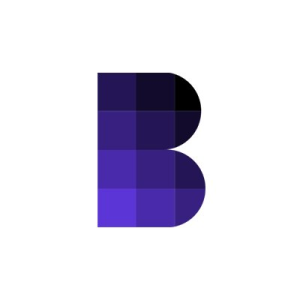Kazakhstan crypto crackdown accelerated in 2025: authorities closed 130 crypto platforms and seized $16.7 million in cryptocurrencies, while introducing mandatory ID verification for card top-ups over 500,000 tenge as part of tighter AML controls. 130 crypto platforms shut in 2025 Authorities seized $16.7 million in crypto and $642,000 linked to illegal mining. New AML rule: bank card top-ups above 500,000 tenge require sender IIN verification. Kazakhstan crypto crackdown: 130 platforms closed and $16.7M seized in 2025 — learn new AML checks and compliance steps now. Despite Kazakhstan’s public pro-crypto stance, the volume of crypto platforms engaged in illicit financial schemes has increased in 2025. Kazakhstan, an emerging cryptocurrency hub in Central Asia, has stepped up enforcement against illicit crypto activity while continuing to promote lawful digital-asset innovation. What happened in Kazakhstan’s 2025 crypto crackdown? Kazakhstan crypto crackdown saw regulators dismantle 130 crypto platforms this year, focusing on unlicensed crypto exchangers involved in suspected money-laundering schemes. Officials report seizures totaling $16.7 million in cryptocurrencies and separate confiscations linked to illegal mining operations. How many platforms were taken down and what was seized? According to the Financial Monitoring Agency (AFM), 130 crypto platforms were removed from operation in 2025, compared with 36 the previous year. The AFM reported seizure of $16.7 million in various cryptocurrencies, plus $642,000 tied to illicit mining activities. Kairat Bizhanov, deputy chairman of Kazakhstan’s Financial Monitoring Agency. Source: Sozmedia.kz What new AML measures are being introduced? AFM deputy chairman Kairat Bizhanov said authorities will require mandatory verification of the sender’s Individual Identification Number (IIN) for all bank card top-ups exceeding 500,000 tenge (about $925). Previously only the recipient’s IIN was required. Officials are also assessing confirmation via mobile app or SMS. Why are regulators targeting crypto exchangers? Regulators distinguish the shuttered entities from conventional centralized exchanges: these services act more like currency exchange offices and are commonly labeled crypto exchangers. Enforcement targets unauthorized platforms that facilitate unverified flows and suspected laundering. An excerpt from AFSA’s public register of licensed digital asset service providers. Source: AFSA Per the Astana Financial Services Authority (AFSA) public register, 20 digital-asset providers had formal approval to operate in Kazakhstan at time of reporting, including major centralized exchanges listed in the register by name as approved operators. How does this affect licensed providers and users? Licensed providers face increased compliance obligations and closer supervision. Consumers should confirm provider registration in AFSA’s public register before transacting. Businesses handling high-value card top-ups must implement IIN verification and improved transaction monitoring. How should businesses comply with new AML checks? Companies processing card top-ups or operating as digital-asset service providers should update onboarding and transaction-monitoring processes immediately to align with AFM guidance. Verify sender and recipient IINs for card top-ups over 500,000 tenge. Enhance transaction monitoring for rapid detection of suspicious flows. Document compliance policies and staff training on KYC/AML procedures. Coordinate with AFSA for licensing status and regulatory updates. { "@context": "https://schema.org", "@type": "HowTo", "name": "How businesses should comply with Kazakhstan's new AML checks", "description": "Step-by-step compliance steps for verifying IINs and improving transaction monitoring for card top-ups over 500,000 tenge.", "image": "https://en.coinotag.com/uploads/2025-10/0199c3e4-c0a7-7c69-965f-86d236b16c34", "totalTime": "PT2H", "supply": [], "tool": [], "step": [ { "@type": "HowToStep", "name": "Implement IIN verification", "text": "Update payment flows to require verification of the sender's Individual Identification Number (IIN) for top-ups >500,000 tenge." }, { "@type": "HowToStep", "name": "Enhance monitoring", "text": "Deploy rules to flag irregular patterns and integrate alerts for compliance teams." }, { "@type": "HowToStep", "name": "Train staff and document policies", "text": "Provide AML training and maintain documentation for inspections and audits." } ]} { "@context": "https://schema.org", "@type": "NewsArticle", "headline": "Kazakhstan crypto crackdown: 130 platforms shut, $16.7M seized and new AML rules", "image": [ "https://en.coinotag.com/uploads/2025-10/0199c3e4-c0a7-7c69-965f-86d236b16c34" ], "datePublished": "2025-10-08T08:00:00Z", "dateModified": "2025-10-08T12:00:00Z", "author": { "@type": "Organization", "name": "COINOTAG" }, "publisher": { "@type": "Organization", "name": "COINOTAG", "logo": { "@type": "ImageObject", "url": "https://en.coinotag.com/logo.png" } }, "description": "Authorities in Kazakhstan shut 130 crypto platforms in 2025 and seized $16.7M in cryptocurrencies; new AML checks require sender IIN verification for high-value card top-ups.", "mainEntityOfPage": { "@type": "WebPage", "@id": "https://en.coinotag.com/kazakhstan-crypto-crackdown-2025" }} { "@context": "https://schema.org", "@type": "FAQPage", "mainEntity": [ { "@type": "Question", "name": "How many crypto platforms were shut down in Kazakhstan in 2025?", "acceptedAnswer": { "@type": "Answer", "text": "Kazakhstan’s Financial Monitoring Agency reported shutting down 130 crypto platforms in 2025, compared with 36 closures in the prior year." } }, { "@type": "Question", "name": "What assets were seized during the enforcement actions?", "acceptedAnswer": { "@type": "Answer", "text": "Authorities reported seizing $16.7 million in various cryptocurrencies and an additional $642,000 linked to illegal mining activities." } }, { "@type": "Question", "name": "What new verification is required for card top-ups?", "acceptedAnswer": { "@type": "Answer", "text": "Bank card top-ups exceeding 500,000 tenge now require mandatory verification of the sender's Individual Identification Number (IIN); confirmations via mobile app or SMS are being considered." } } ]} Frequently Asked Questions How many platforms did Kazakhstan close in 2025 targeting crypto exchangers? Kazakhstan’s AFM reported shutting 130 crypto platforms in 2025. Regulators differentiate these services from licensed centralized exchanges, describing many as unlicensed crypto exchangers facilitating unverified flows. Will seized funds be used for a state crypto reserve? It remains unclear. Officials say a state-backed crypto reserve is under consideration, but the legal framework and allocation of the seized $16.7 million have not been finalized. Key Takeaways Enforcement spike : Kazakhstan closed 130 crypto platforms in 2025, up from 36 last year. Significant seizures : Authorities report $16.7M seized in crypto and $642K from illegal mining. New AML checks : Card top-ups over 500,000 tenge now require sender IIN verification; businesses must update KYC and monitoring. Conclusion Kazakhstan’s crypto crackdown demonstrates a shift toward stricter AML enforcement while maintaining support for licensed digital-asset activity. Market participants should confirm AFSA registration, adopt IIN verification for high-value top-ups, and strengthen transaction monitoring to remain compliant. Stay informed as regulatory guidance evolves.
 Prediction markets boom as crypto pulls back
Prediction markets boom as crypto pulls back












